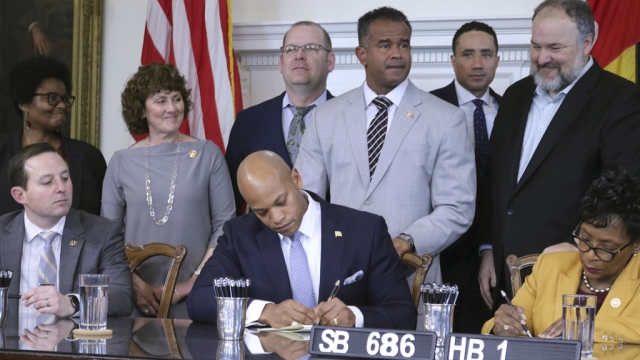Tuesday afternoon, Maryland Gov. Wes Moore signed a bill eliminating the statute of limitations on civil suits against sexual abusers.
And survivors say it's about time, in more ways than one.
"This bill, at the end, will not undo years of suffering, but maybe, it will give us hope," said state Delegate C.T. Wilson.
Wilson — a victim himself and one of the bill's architects — took to the podium and made an emotional attempt to explain what abuse does to survivors over the years.
"My neglect, my emotional unavailability, that I'm volatile, that I'm distant, that I'm quick to step out and abandon people — I'm not speaking for all the survivors, but I am speaking for quite a few of them, who unintentionally left a trail of sadness as we struggle every day just to make it," Wilson said.
Before the new law, victims over the age of 38 were not permitted to pursue lawsuits against their abusers or institutions related to their abuse.
"There is no statute of limitations on the pain these victims continue to feel. There is no statute of limitations on the hurt that endures for decades after someone is assaulted," said Moore.
Advocates say the bill does not get rid of trauma but can help send a message to institutions by hitting them where it hurts.
"You sexually assault a child, we as a society are going to hold you accountable no matter what," Kathryn Robb of advocacy group USAdvocacy told Scripps News.
Maryland's law goes into effect in October and comes on the heels of a damning report from the state's attorney general about the Archdiocese of Baltimore, where investigators say Catholic Church leaders abused and, in some cases, tortured more than 600 victims over 60 years.
The Baltimore Archdiocese has since apologized to the victims, saying the report details a reprehensible time in their history.
The cap for lawsuits against religious organizations in Maryland is $1.5 million, while the cap on public institutions is $890,000.
This discrepancy is something Catholic church representatives oppose and will likely challenge in court.



